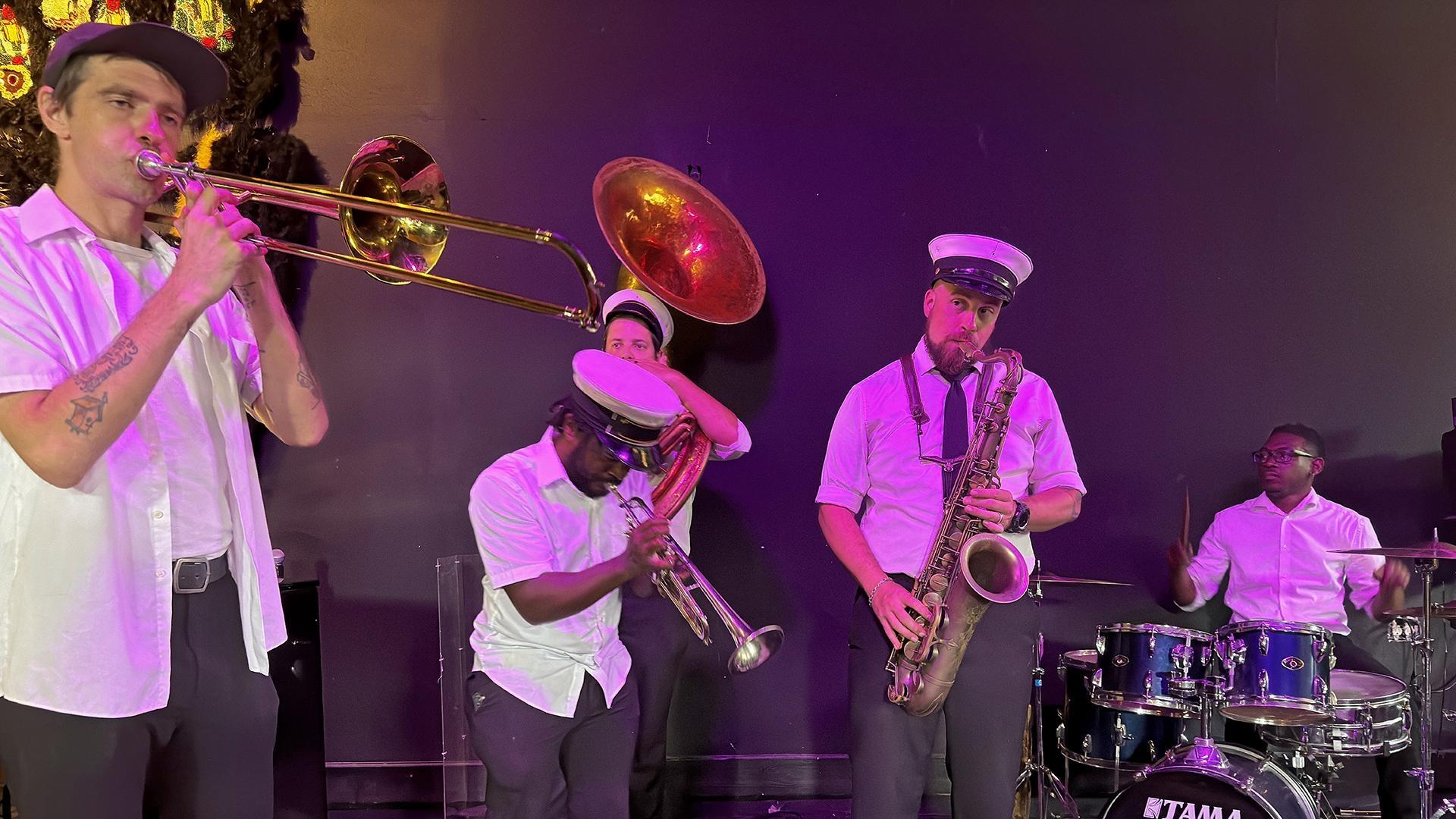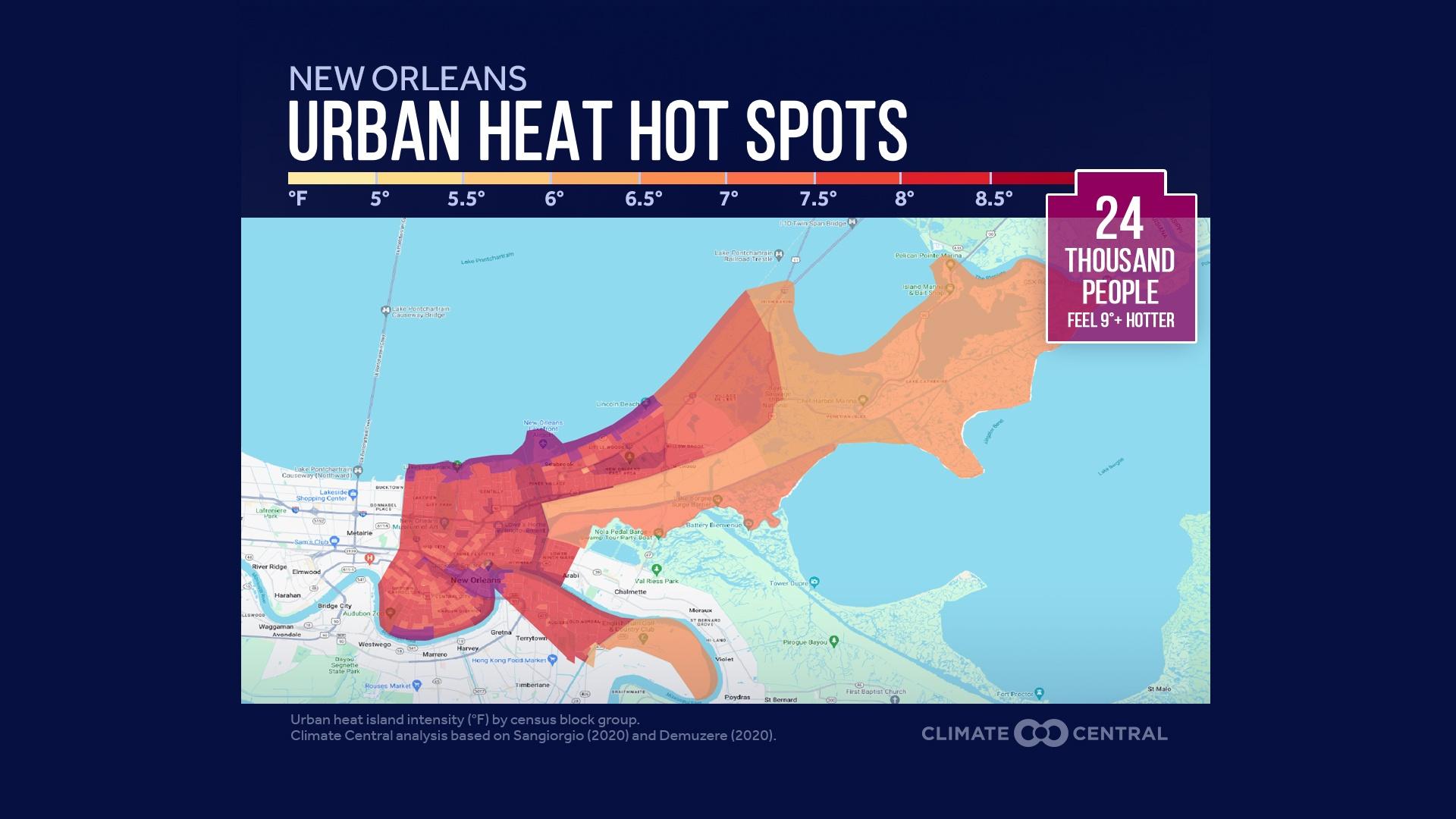Higher temperatures aren’t just uncomfortable, they’re dangerous.
But heat can be deceptive, Brady said, because it doesn’t have the “visual, all-encompassing impact” of things like hurricanes — something New Orleans is intimately familiar with.
But heat kills more people than any other weather event, including floods and hurricanes. In Louisiana, 51 people died from heat exposure in 2024, and more than 6,000 went to the hospital for heat-related illness.
Street musicians in New Orleans often have a front-row seat for how the heat impacts people. Adam Lessnau, a trombone player who often performs in Jackson Square in the French Quarter, said he’s seen both tourists and musicians pass out, “overwhelmed by the heat.”
Extreme heat stresses the human body at a fundamental level, down to the DNA.
“When we’re exposed to high heat, our bodies work hard to regulate internal temperature,” said Dr. Mostafijur Rahman, a heat health researcher at Tulane University’s School of Public Health and Tropical Medicine. “We sweat more, and blood flow shifts toward the skin to release heat. But this can raise the risk of dehydration, heat exhaustion, and heat stroke.”
The impacts don’t stop there. Prolonged or repeated exposure to extreme temperatures can harm the body in deeper ways, leading to what scientists call oxidative stress.
“Heat stress increases reactive oxygen species — unstable molecules that can damage cells, proteins, and DNA,” Rahman said. “Over time, that can contribute to cardiovascular disease, respiratory problems and neurodegenerative disorders.”
Certain groups face greater risk, Rahman said, including older adults, children, pregnant women and people who live and work outside, like musicians.
There are also compounding stressors in certain pockets of the city. More than three-quarters of New Orleanians live in “urban heat islands,” where concrete and a lack of shade can make temperatures feel 9 degrees hotter, according to research from Climate Central.





